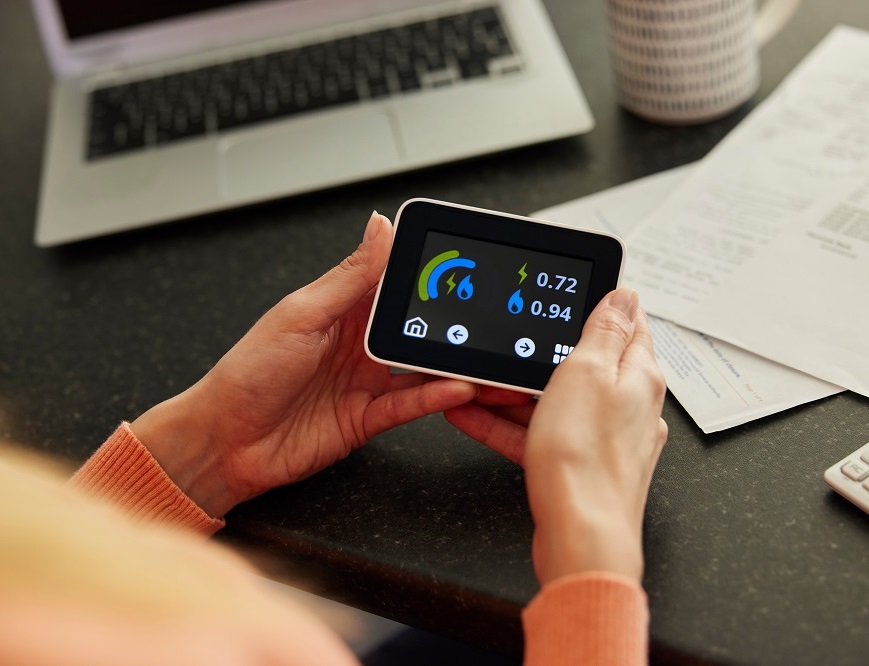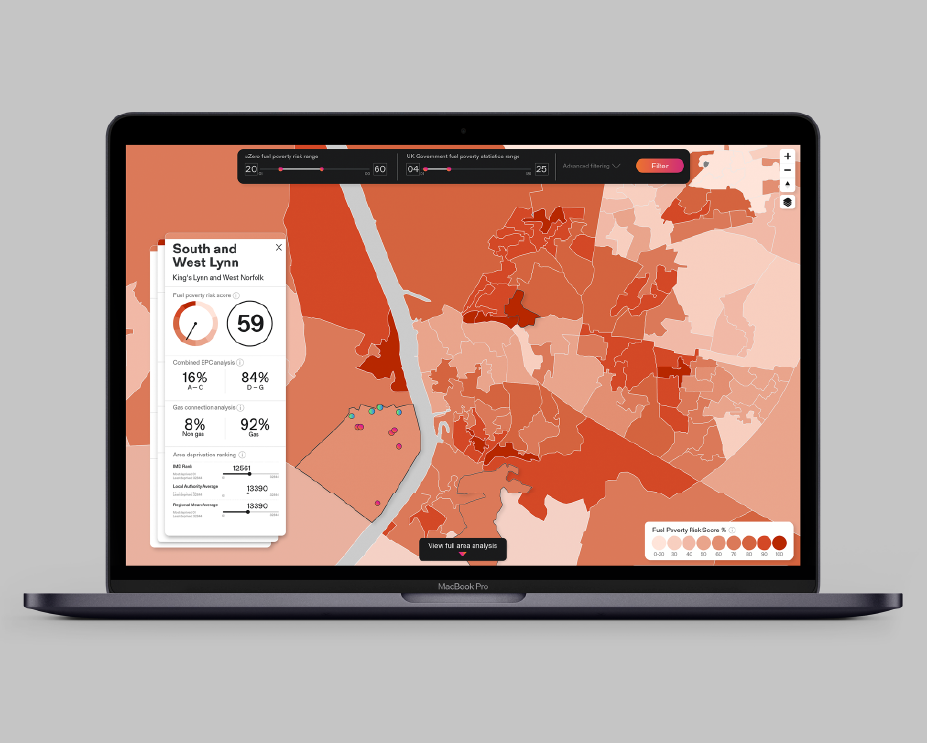The Opportunity
Britain’s energy infrastructure is undergoing a vast transformation in the transition to Net Zero. The future flexible energy system will be digitalised and interconnected, with smart meters at its heart, enabling consumers to manage their energy use and reduce costs by providing accurate billing. However, the public benefit that can be realised through appropriate use of this data is far greater.
Today, with more than 31 million smart meters connected around the UK, the DCC’s smart and secure communications platform is a public asset which sees over 2.1 billion digital messages sent each month. Greater transparency of, and accelerated access to, this anonymised data can be used to deliver public benefit - directly to consumers, the energy system and for health and care services.
Moving the Dial
Building on our thought leadership and recommendations from the Government’s Energy Digitalisation Taskforce, the DCC teamed up with the Energy Systems Catapult to incite action in this area. We’ve put forward proposals to industry in our report, Data for Good, which can be implemented to maximise public benefit from access to smart metering data.
Key Recommendations
- Unlock smart meter system data to support fuel poor households: Following a successful trial of the uZero project, support is required from Government, Ofgem and industry to unlock system data for this vital public interest purpose.
- Maximise access to smart meter data through existing mechanisms: Improvements are needed to the current data access regime so that organisations can onboard easier and undertake early-stage trialling and testing of new data-driven propositions prior to full integration with the smart metering system.
- Establish a data institution for smart meter data: A dedicated entity should be set up to oversee the governance of, access to and use of smart meter data for public good. This will help to resolve the complex interaction between smart meter regulations and data legislation obligations.
- Maximise data access while minimising risk: It is essential to deploy new privacy-enhancing technologies for smart meter data to enable the broadest public interest use cases with the lowest possible risk.
Mobilising stakeholders
To continue the conversation, we convened a workshop with the Energy Systems Catapult, bringing together subject matter experts with policymakers, industry, academics and consumer representatives. Stakeholders shared ideas for collaboration and to make full use of the benefits that can be unlocked through enhanced data access.
Continued support and collaboration between policymakers and industry will ensure we create a data access regime that drives digital energy innovation and delivers public benefit.

Data for Good in action
Tackling fuel poverty through smart metering
Given the scale of the impact of the energy crisis on households - with an estimated 6.7 million homes being defined as ‘fuel poor’ - urgent action is required to provide access to data that can help deliver interventions to support these households effectively. Many new measures and services have arisen in response to this challenge, but the reach and impact remain insufficient to tackle the scale of the problem.
In line with this call to action, we consider how the smart metering system can be more effectively used to help tackle the issue in our white paper, Tackling Fuel Poverty Through Smart Metering.
With billions of data transactions already taking place across the network each month, the smart metering system offers a unique data set from which insight can be gained to support targeted services. As an already established national asset with a proven track record of delivery, we are a platform that can contribute to tackling the challenge, both in the short term as we prepare for difficult winters, and in the long term, to ensure a just transition to Net Zero.

uZero
Efficiently identifying households most at risk from fuel poverty is critical as the country tackles the impact of the cost of living and energy crises. Although local authorities, energy suppliers and other organisations have obligations to help vulnerable households, they face significant barriers to identify those households in most need of support.
Following two years of development and testing with our consortium partners Greater Southeast Net Zero Hub, University College London and Connected Places Catapult, the award-winning fuel poverty identification tool 'uZero' developed by Urban Tide is complete.
Powered by Urban Tide’s advanced AI technology and using aggregated and anonymised smart meter ‘system data’ combined with other cross-sector datasets, this new tool offers a range of projected benefits:
- Reduction in identification and search costs for the energy industry as they seek to meet their obligation to deploy energy efficiency measures
- Better targeting of energy efficiency retrofit, resulting in reduced bills and improved wellbeing for consumers.
- The ability to lower household emissions through energy efficiency measures, supporting the UK’s transition to net zero.
Anonymised system data is a new area of exploration and must be assured from a security and privacy perspective first. DCC and the other consortium partners champion a strong ethical approach to data use (privacy by design) and are committed to ensuring UK GDPR requirements are fully met at all stages of the project.

Potential users of uZero include local authorities, energy suppliers, distribution network operators, housing providers, the NHS and other support organisations and charities who can use the information to target energy efficiency measures where they’re most needed.
Download the summary report: uZero - Tackling the Growing Fuel Poverty Crisis with AI.
Find out more about uZero on the Urban Tide website.
You can read more about the impact of uZero on tackling the fuel poverty crisis in this blog by our Head of Strategic Innovation, Matt James.
Further reading





